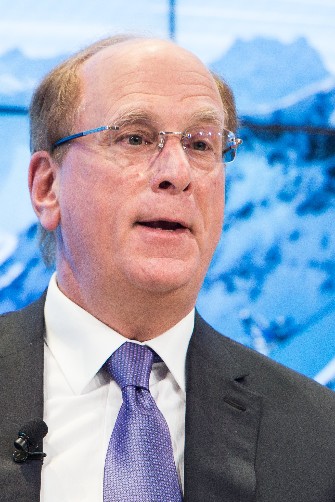In recent years, a significant number of companies have expanded their business purpose beyond profit-making. From mega-brand Unilever to small family-owned companies, chief executives and boards of directors are adopting purposes beyond making money, even committing to tackling social, health and environmental problems to create resilient communities and a sustainable planet.

You’ve probably read about these companies and their CEOs. There’s debate about the effectiveness of a purpose beyond profit, with critics claiming that some companies are going too far to make a social statement. Earlier this year, Terry Smith, founder of Fundsmith Equity Fund, called Unilever’s sustainability focus ‘ludicrous’ and blamed the strategy for weakening the firm's performance.
But there are also all-out fans. Laurence Fink, CEO of BlackRock, the world’s largest equity investor, has been urging global corporate leaders to incorporate ESG goals into their business purpose for years. Politicians are also proponents and French lawmakers recently passed legislation that gives CEOs the legal green light to look beyond quarterly reports and shareholder profits.
Academics like me are also paying attention. A growing body of research shows that including social and environmental objectives in investment decisions enhances financial performance and reduces risks.
ESG as a corporate life preserver?
After the 2008 financial crisis, researchers looked at the stock performance of more than 1,000 publicly traded firms with a focus on those that promoted purpose over profit. They found that those with significant ESG programs in place – or ‘high-ESG’ firms – outperformed low-ESG firms on the stock market and that high-ESG firms also witnessed above-average profitability, sales growth and employee productivity, even during a financial downturn.

Researchers hypothesized that shareholder trust had a lot to do with these results: shareholders were willing to take a chance on high-ESG firms even during tumultuous times because they shared a common view regarding current social, environmental and health challenges.
But what works for one firm in one industry doesn’t always work for another in a different industry. This was the finding of another group of researchers on reviewing the SEC filings of more than 10,000 firms across six industries. These researchers created a methodology that could be used to define material ESG issues on a sector-by-sector basis. They argued that this is the only way to develop KPIs, without which none of us will ever truly know whether ESG at the corporate level is working.
Encouraging teamwork
In the world beyond the ivory tower, corporate purpose beyond profit is still viewed by many as the ideal. In addition to Unilever, Patagonia, Novo Nordisk and Philips have all woven different noble ideals into their purpose. These superstar companies appeal to consumers and shareholders alike and attract employees who are committed, even passionate, about working for them.
 The leaders of these companies argue that a purpose-driven mission brings people together to pursue a common idea and goal. Teamwork between departments and distant divisions is easier thanks to a unifying ambition that inspires and motivates.
The leaders of these companies argue that a purpose-driven mission brings people together to pursue a common idea and goal. Teamwork between departments and distant divisions is easier thanks to a unifying ambition that inspires and motivates.
An expanded business purpose can also be beneficial because it can have the opposite effect. Not every customer, employee or investor will fall in love with a company because it has an inspirational mission statement. Some team leaders will dismiss business purpose as a bad idea from the marketing department. And some employees will grumble when a manager reminds them to aim for the greater good when customers are dissatisfied and sales are down.
This is an extract of an article that was published in the Winter 2022 issue of IR Magazine. Click here to read the full article.










